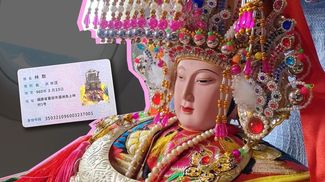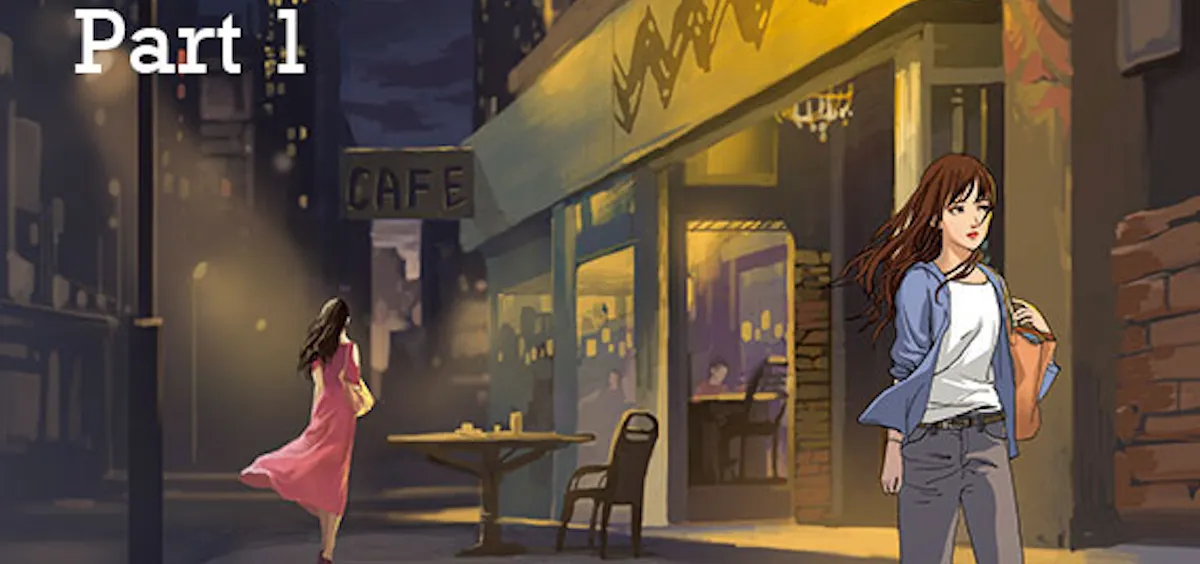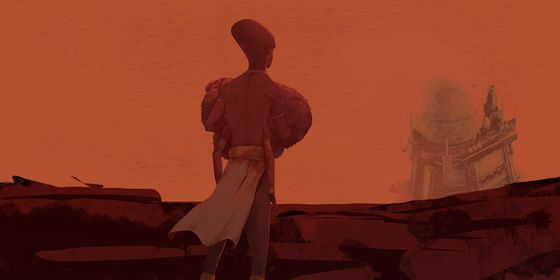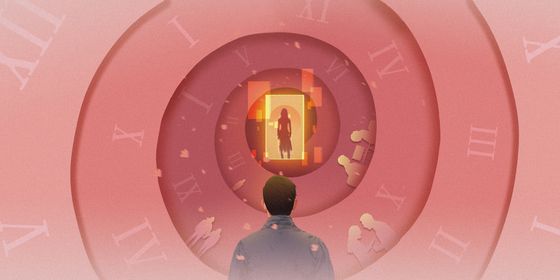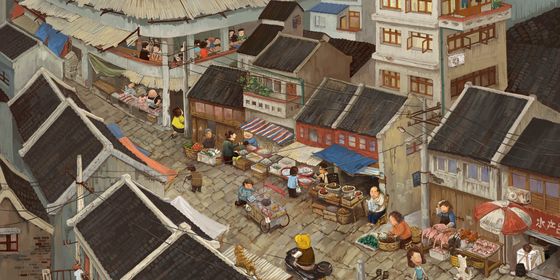The 1980s generation has to grow up sometime
About the Author: Liu Liduo 刘丽朵 has a PhD in classical Chinese literature from Peking University, and mainly writes poetry and fiction. Her poems have been published in Poetry Journal (《诗刊》) and other top poetry magazines in China. Romance stories in ancient literature and legends serve as much of her inspiration for her essays and short fiction works; She’s also an acute observer of modern urban lifestyles. She recently published the essay collection Revival (《还魂记》) and the urban romance novel, Who Is The One? (《谁能与共》). This story is selected from a digitally published short story collection under the same name on Douban.com.
When Kongshan said she was coming to my house that day to eat, I hurried to get some chicken wings to make for her. She hadn’t been over many times, and we didn’t see each other often—you couldn’t exactly say we were “BFFs”. The last time she came was spring of the previous year, or maybe spring the year before. The weather still hadn’t heated up, and everyone was wearing sweaters. It was evening. As soon as she came through the door she took her thin, long coat off to show a black spaghetti-strap dress, revealing her shoulders. I asked, surprised, “Aren’t you cold?” Kongshan said she wasn’t cold, but went straight for the shower, where she turned on the hot water. That day it was just me at home, and Kongshan appeared like a wind and disappeared into the shower behind the white door as the sound of falling water bled into the room. I’d just mopped the floor, and it was still a bit moist. I stood alone outside the shower as the air blew in from every room in the house. It was cool and comfortable.
The oil in the wok was heated, so I threw in the peppers, and then the onions, frying as I went. I added some more oil, heated it, and then threw in the already cut chicken wings, plus a bit of red wine for flavour. While I was in the middle of this, Kongshan arrived. The smell of the chicken and spice was all around the room, but Kongshan’s perfume managed to make its presence known in the kitchen atmosphere.
“And what fragrance is that?” I asked.
“Paul Smith Rose,” she replied.
I had put thought into what I was going to wear, but I knew that Kongshan would have something to say about it. She wrinkled her brows as she asked me, “What kind of color combo is that?” I had some drab blue trousers on with a red shirt, underneath it a neon blue camisole. “You look like a rock band member from the last decade.” Yeah, sure. So I look like a rocker from ages past—as if that’s some really negative thing. I can accept that.
“I got you that electronic music you wanted, Portishead. It’s a bit jazz, but I think there’s some electronic elements in there, too.” When I brought the food to the table, Kongshan took out a CD. I read the yellow label “Mysterious, desolate, cold, and dark, this trashy trip-hop will delight…” I laughed, reading the label as I stuck the disc into the machine. The desolate, cold voice of the girl singing mixed with the drums and noise, just like the crappy spring weather that we were having in Beijing. I suddenly thought, just like the “rockers of ages past”—all those bands that I’d listened to before—the traces had been wiped clean like how a tidal wave washes away all scars on the sand. I’d had hard times in my youth, but I’d gotten through them, and wiped them away. 2010 was an unbelievable year, and this year had just started. There had already been a number of earthquakes, and the smell of Armageddon was in the air. The real Armageddon, however, was that people born in the 1980s were now all entering their 30s.
I’d been mumbling and whining since the previous day, just like before…After being comforted for an hour, I went on MSN and complained more to Kongshan.
“Yes, Yes, why are you complaining…” I’d been at it for an hour when she wrote this.
“Because I’m old.”
“Ah, so… (Said in the whiny style of a Korean soap opera).”
“I feel like there’s no hope, I’m holding back tears.” And I really was holding back tears, rather than just saying it.
“I’ve already been whining for a year, crying about this and that… Two days ago I played cards with a group of people born after 1985, and I didn’t dare tell them my age for fear of killing the mood.”
“That’s just it! I feel like I’m past all that whining and love story stuff. I’ve grown up, but I’m also not on the level of my accomplished peers.”
“That’s right!!” My whining and complaining was always responded to with ardour from Kongshan. This is the basis of friendship.
“And I think these people younger than me are also on the path to becoming accomplished.”
“I think I’ve been cast off by my successful peers. I’m an outsider with people of my own age now.”
The voice on the album accompanied us throughout our meal. The person I married—friends all call him Grandpa Q—sat at the same table as us. Grandpa Q believed that the Warring States poet Qu Yuan was the model for Lin Daiyu, one of the main female characters in Dream of the Red Chamber, which I had relayed as fact to Kongshan, which she approved of. She was like the reincarnation of Lin Daiyu: emotional, cold, and dark. Maybe that included me, too. I’d been through the vicissitudes of decades (not just the run-up to my 30s for nothing) and in one year (which I can’t remember precisely, a reflection of my age) I had a great discovery: the power that guides our ability to decide the direction of our lives isn’t something else—it’s words. Words that for us are intuitive, innate, that provoke a certain kind of first reaction, enter into our commonly used vocabulary, and we find ourselves using them unconsciously. These words determine whether or not we like something, they determine everything. “Alone, lonely, and cold,” she would say. “A frail chrysanthemum opens late,” I would say. “Wilted,” she would say. “Not the concern of the solitary and sad,” I would say. “He lowers his head and laughs, as a dark flower blooms,” she would say.
After spending a lot of time and effort I discovered these words weren’t favorites. Most people liked words like “vigorous”, “successful”, and “moneyed”. Kongshan and I weren’t 100 percent on the same page. When she was in high school, she read a lot of French novels, and then in university Mishima Yukio and Tanizaki Junichiro made her view herself as such, whereas I was too busy swimming in Russian tears and vodka—walking through the psyches of those murderers became normal. We thought in the same vein: the words we both loved were all negative.
“How’s work?” Asked that guy I married, Grandpa Q, face and voice warm.
“Eh, I’m busier when rent goes up,” Kongshan replied.
Kongshan had a very good job; she worked at a powerful media company, but the salary they gave her wasn’t enough to get her to stop worrying about her 3,000 RMB monthly rent. She originally lived in Beijing’s Wudaokou suburb in an apartment she shared with others. When I helped her move out, there were cockroaches everywhere, and books were piled to the ceiling. The rent on that eightsquare-meter room went up to 2,000 RMB, and so she moved to Wangjing, where for the same money she managed to get her own one-bedroom flat. A year later, that figure became 3,000, and after looking all around she found that there weren’t any comparable places below 3,000.
“In addition to going to all those press conferences, I can sometimes sell stuff we’ve already printed to marketing websites, 400 RMB for 1,000 characters,” said Kongshan, amused with herself.
“The Great Charlie Brown, part 1” is a story from our newest issue, “Farming”. To read the whole piece, become a subscriber and receive the full magazine. Alternatively, you can purchase the digital version from the iTunes Store.
Check back tomorrow for the second part.

